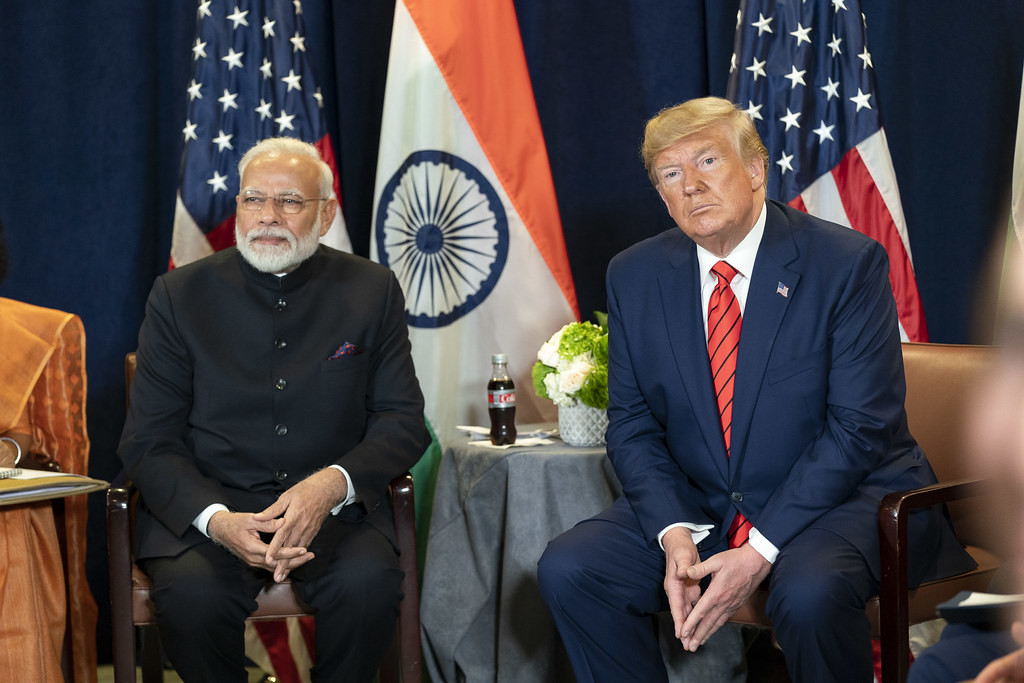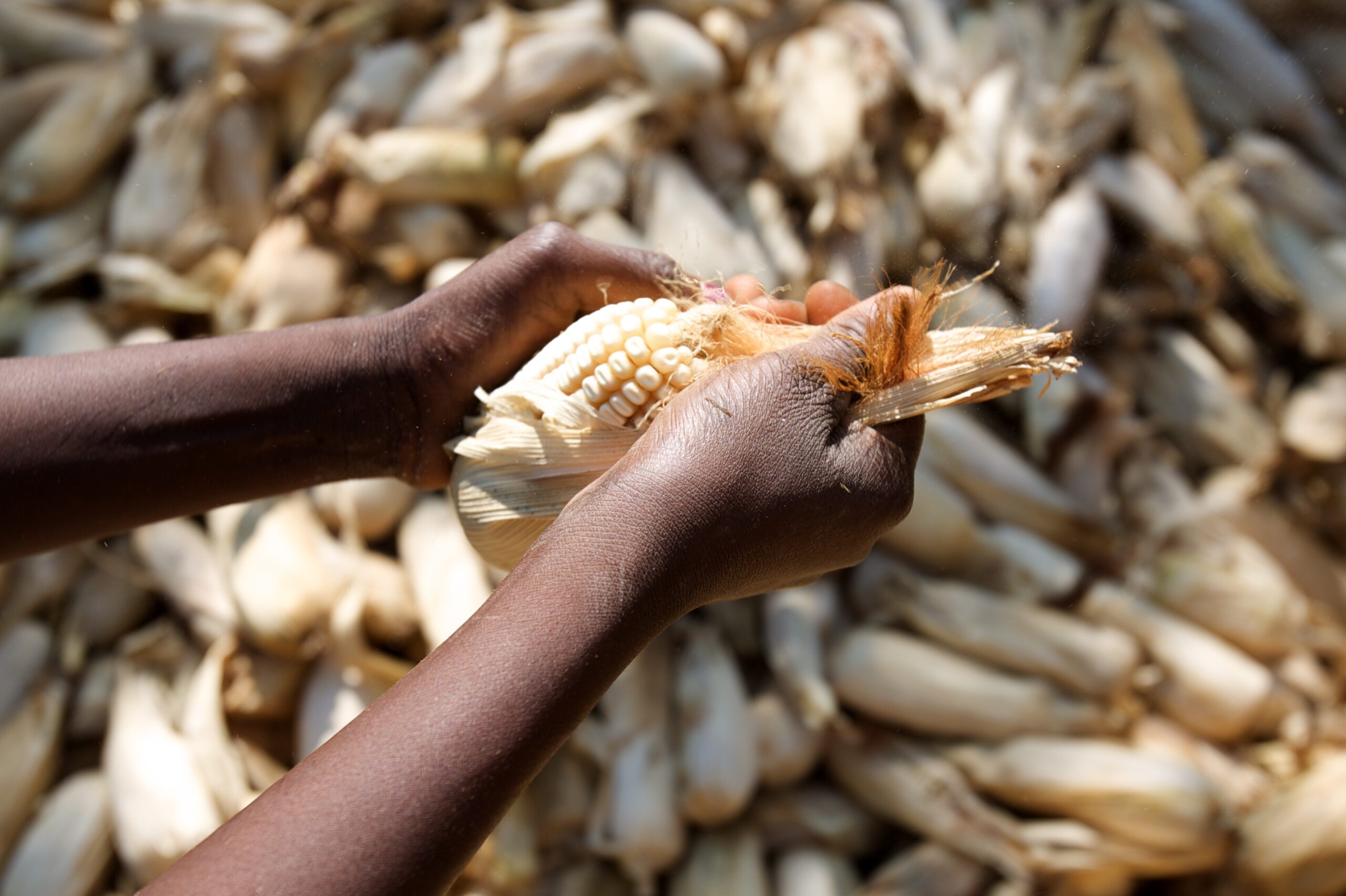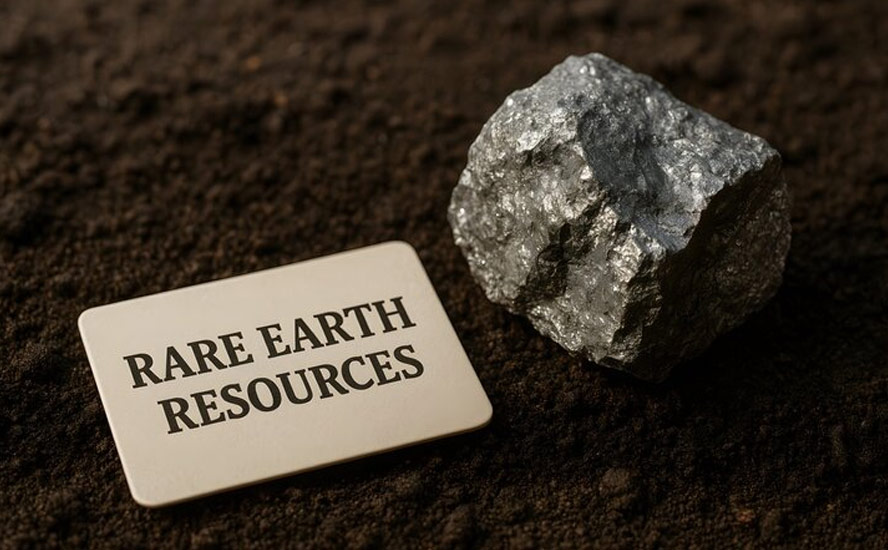On October 15th President Trump told White House reporters that India will stop buying Russian oil, claiming it was ‘big step’ towards pressuring Russia to end its war with Ukraine. However, Indian officials have reported that there was ‘no telephonic conversation between the PM Modi and US President Trump’, undermining Trump’s pledge. For thirty years, the United States and India have developed a strategic partnership founded on aligned defence, technology, trade and Indo-Pacific priorities. However, Trump’s second presidential term has brought their cooperation on the brink of irreversible damage.
The statement that India will halt all Russian oil imports comes after Trump’s imposition of 50 per cent goods tariffs in August 2025. These marked the highest tariffs in Trump’s term and notably did not target other major importers of Russian oil, including China or Turkey. Russia accounts for one third of India’s oil imports, which included 1.62million barrels per day in September 2025. Since August, Modi has pushed back on Trump’s pressure, claiming that India will continue to pursue the ‘best deal’ to protect its 1.4billion population. The Indian Ministry of External Affairs released a statement outlining India’s priority to ‘safeguard interests…in a volatile energy scenario.’
Trump’s statement was motivated by his agenda to ‘get Russia done’ and end the Russia-Ukraine war. US Trade Advisor Peter Navarro has coined the Russia-Ukraine war, ‘Modi’s war’ after stating that New Delhi is financing Kremlin’s ‘war machine’.
On the other hand, India has pursued political non-monogamy. India first established diplomatic ties with Russia during its independence from Britain in 1947. USSR’s early investment in Indian mining and steel and peace treaty mediation between India and Pakistan have fostered a positive ‘historical memory’ according to Aleksei Zakharov, fellow at the Observer Research Foundation. Despite India’s contemporary consolidation of a US strategic partnership, India consistently refrains from counter-Russia movements. In fact, India still engages in a two-way supply of military hardware and technology whilst signing defence agreements with the US.
The tensions mark a significant shift in the US-India relationship. For thirty years, the United States and India have developed a robust partnership centred on strategic interests, economic ties and defence cooperation. In April 2025, Vice President Vance called the relationship ‘the cornerstone of global progress’ that would threaten world order if the two ‘fail to work together successfully’. However, Trump’s claim that he was responsible for a ceasefire between India and Pakistan in May 2025, Modi’s subsequent refusal to nominate Trump for the Nobel Peace Prize, the 50 percent tariffs and now Trump’s obstinate stance on India’s oil imports have broken down one of the most important partnerships in the international community. Senior Vice President for the Centre of American Progress, Damian Murphy writes it has the potential to ‘threaten the long-term foundation’ between the states that ‘may prove impossible to repair’.
The strain comes days after new Indian ambassador, Sergio Gor, met with Modi to discuss defence, trade and technology. Trump’s recent appointment was taken as a positive sign that the US-India relationship remains important to his presidency.
Nevertheless, India adopts a ‘deliberate’ approach, one that tells Trump they will continue to exercise their strategic autonomy over blind alignment. Former Indian ambassador to United Nations, Syed Akbaruddin, notes that India may adjust its oil volumes but will refuse to publicly bow to US demands. They will remain an equal player in the partnership, signalling to the US and the global community, ‘cooperation yes, coercion, no.’
The future of US-India relations remains uncertain. India will face increasing pressure to ‘pick a side’ amongst polarisation and global tensions should be keenly monitored for compounding developments. Trump has already imposed direct sanctions on Russia’s two biggest oil firms, prompting a ‘recalibration’ of purchases from India’s biggest energy organisations. It is clear that the ‘Howdy Modi’ and ‘Namaste Trump’ relationship has ended. It is more likely that Trump will continue to make it incrementally harder for India to maintain a political aloofness, compelling Modi to either pledge allegiance to the US or defect towards anti-US states.
Isha Desai is a writer, researcher and analyst, graduated from the University of Sydney in Politics and International Relations. She was the 2024 Indo Pacific Fellow for Young Australians in International Affairs (YAIA) and currently works in social impact policy at Penguin Random House ANZ. In 2025 Isha was accepted into the Women in Strategic Policy Program, delivered by the ANU Strategic and Defense Studies Centre in partnership with Girls Run the World.
This article is published under a Creative Commons License and may be republished with attribution.





